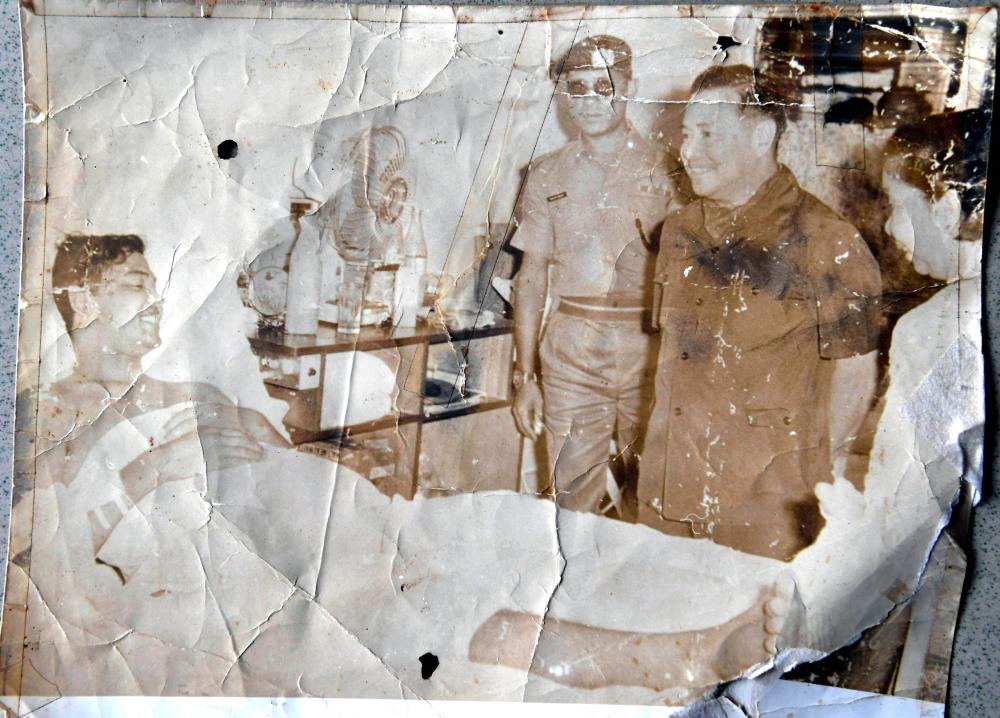PONTIAN: The memory of how five of his brothers in arms lost their lives in a communist terrorist ambush 48 years ago in Sarawak, still evokes emotions in 72-year-old retired Staff Sergeant Ahmad Ibrahim.
In the incident, which took place in Sarawak on a Friday when sunny weather suddenly turned to a shower of rain, Ahmad was on his way back with six other colleagues from the hospital to their duty station at Kem Biawak in Sematan, located about 97 km from Kuching, when they were beset by a group of communist terrorists hiding in the jungle.
Speaking to Bernama, Ahmad recalled, with tears freely flowing, that he was seated alongside the driver of the vehicle which was transporting the group.
“He (the driver) was the first to die in the enemy fire,“ the veteran said, explaining that he too was shot in the foot and back but escaped death because the terrorists thought he had died.
During the interview, which had to be halted a few times to give the retired soldier time to compose himself, Ahmad recounted being transported by helicopter to the Kuching Hospital where he spent three months in recovery.
Also escaping death was a colleague called Mansur, said Ahmad, explaining that he only knew about the deaths of his other compatriots when visitors to the hospital told him - all seven in the group had been with the medical corps at Kem Biawak.
“I looked at it as a test from Allah (God), so I held on to that ... but I would never forget (the loss of my friends),“ he said of the March 1971 incident, adding that he continues to pray for his five deceased friends, all of whom hailed from Peninsular Malaysia.
Ahmad said he hopes very much to locate Mansur, who was from Kuala Lumpur, saying: “If the opportunity arises, I would like to see him again.”
The veteran, who retired from service in 1983, advised the younger generation to join uniformed bodies such as the police and the military so that they can contribute to the nation.
He said: “The government always looks after retirees like me. I have to undergo dialysis treatment but I am thankful that it is free of charge.” - Bernama










